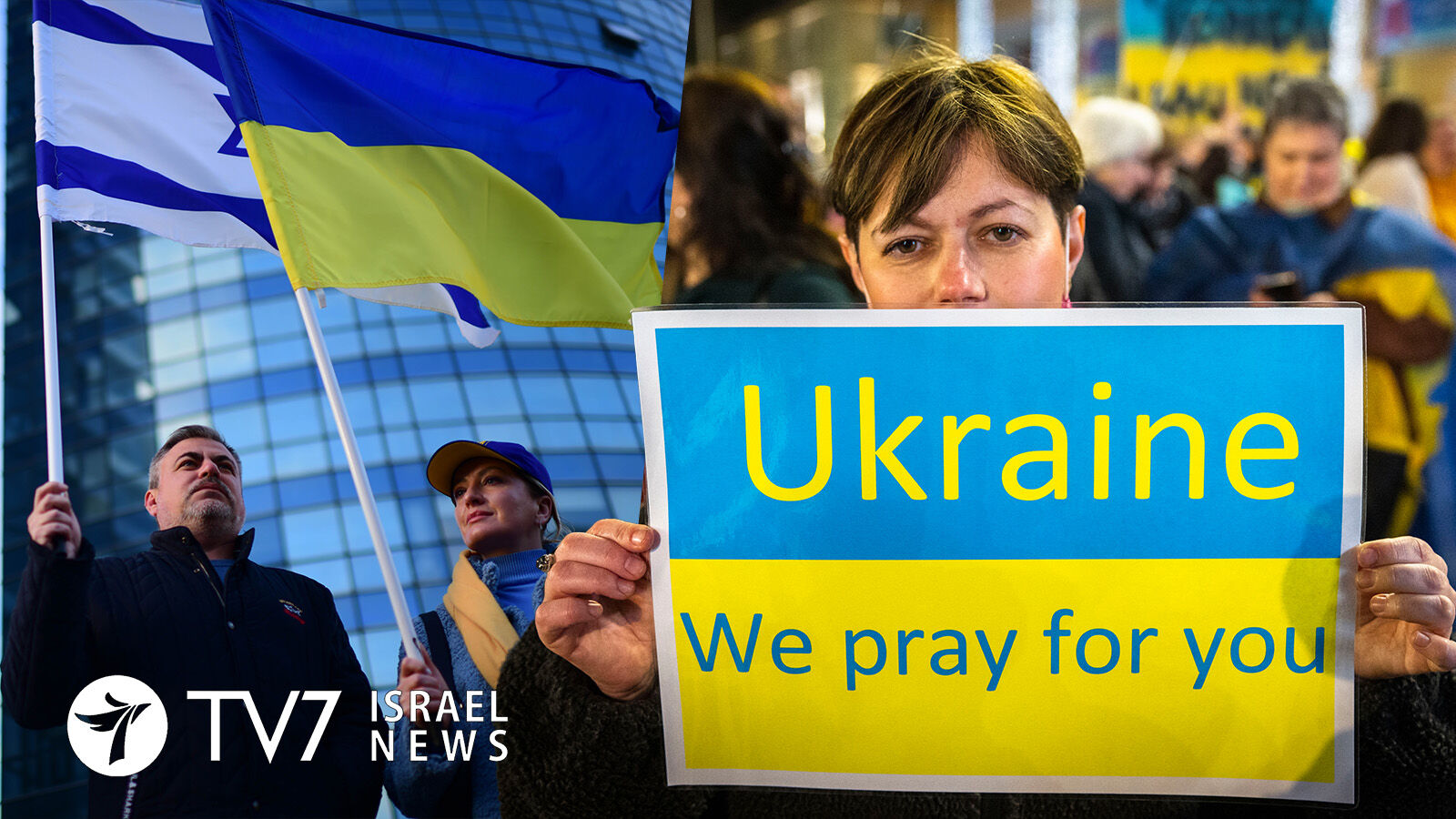Interior Minister Ayelet Shaked declared that Israel has already admitted scores of people fleeing the war in their native country.
By Erin Viner
Saying “we should stick to the facts,” the senior Israeli official said that “97 passengers from different countries in the world with Ukrainian passports arrived in Israel” on Monday, while two others were refused entry due to “for justifiable reasons.” During an interview with Israel’s Army Radio channel, she added that “the professionals of the Population and Immigration Authority” must be permitted to “do their job.”
“Along with helping Ukraine, we must ultimately safeguard the interests of the State of Israel,” underscored Minister Shaked.
The statements came in refutation of earlier assertions from Ukraine’s Ambassador to Israel Yevgen Korniychuk that nationals from his homeland had been turned away after landing at Ben Gurion International Airport.
The Ukrainian envoy to Israel tearfully implored it to provide more war aid on Tuesday even as Prime Minister Naftali Bennett defended his government’s open channels to both Kyiv and Moscow as a means of offering “quiet” help.
In a speech at Mossad intelligence headquarters yesterday, Bennett said Israel’s “measured and responsible approach” to the crisis “allows us not only to guard our interests, but also to be useful — to be a credible player, one of the few that can communicate directly with both parties, and assist as required. And we are indeed helping — quietly,” he said, according to his office.
Ukrainian Ambassador Kornichuk called on Israel during a press conference in Tel Aviv yesterday to expand its asylum criteria for Ukrainian refugees.
Israel, with a total population of just over 9.3 million, says it is focusing on the 40,000 Ukrainian Jews and 180,000 Ukrainians with Jewish family ties who might want to immigrate.
Ukraine is “disappointed” that Israel is “not allowing entrance to the war refugees” or “granting them asylum,” said Kornichuk. He also said that Jerusalem said Israel has not met Kyiv’s request for helmets and “defensive weapons” similar to those provided by Western powers; and called for Russian broadcasters popular with Israel’s large community from Former Soviet Union nations to be pulled off the air.
When asked to comment on the death of Israeli national of Roman Brodsky in the city of Bila Tserkva 84 km (52 miles) south of Kyiv on Sunday, the envoy said it has not been determined whether he was shot by Russian or Ukrainian forces. “We’re looking out for the Israelis exactly as we are looking out for the Ukrainians, and we help them cross the border and leave the country to a safe place,” he said.
The Ukrainian Embassy is working to open a hotline to help Israelis and Ukrainians seeking to come to the Jewish State, he added.
Alex Zrnofolski, an attorney said to be representing the refugees who also spoke at the press conference alongside Ambassador Kornichuk, said he is “calling on Prime Minister Bennett and Minister Shaked, let’s open our hearts and prove that we’re a nation with mercy and humanity, and accept the Ukrainians. We need to think in a humane way and first of all absorb them without asking so many questions and making it hard for them… these are refugees that are going through hell right now.”
TV7 is unable to independently confirm claims by both Zrnofolski and Ambassador Kornichuk that the Israeli government is requesting a deposit of ₪ 10,000 shekels (about $3,087 or €2,787) held as a guarantee they will eventually leave the country. None of the government officials, including at the Interior Ministry, have responded to TV7’s request for comment.
There has been a tremendous show of support in Israel for Ukraine since the 24 February invasion by Russia.
Multiple mass demonstrations have been held in major cities such as Tel Aviv and Haifa. Israel also shipped 100 tons of humanitarian supplies to the East European nation, and co-sponsored a United Nations resolution condemning the Russian invasion.
